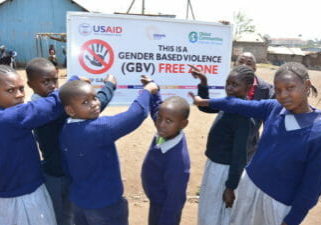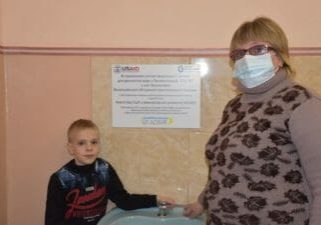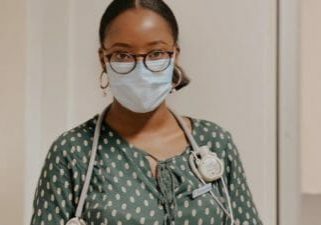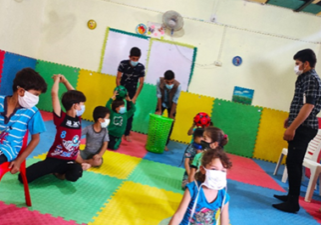News > Blog
Meet Mildred Kalufyanya, PCI Changemaker
Published 02/04/2019 by globalcommunities
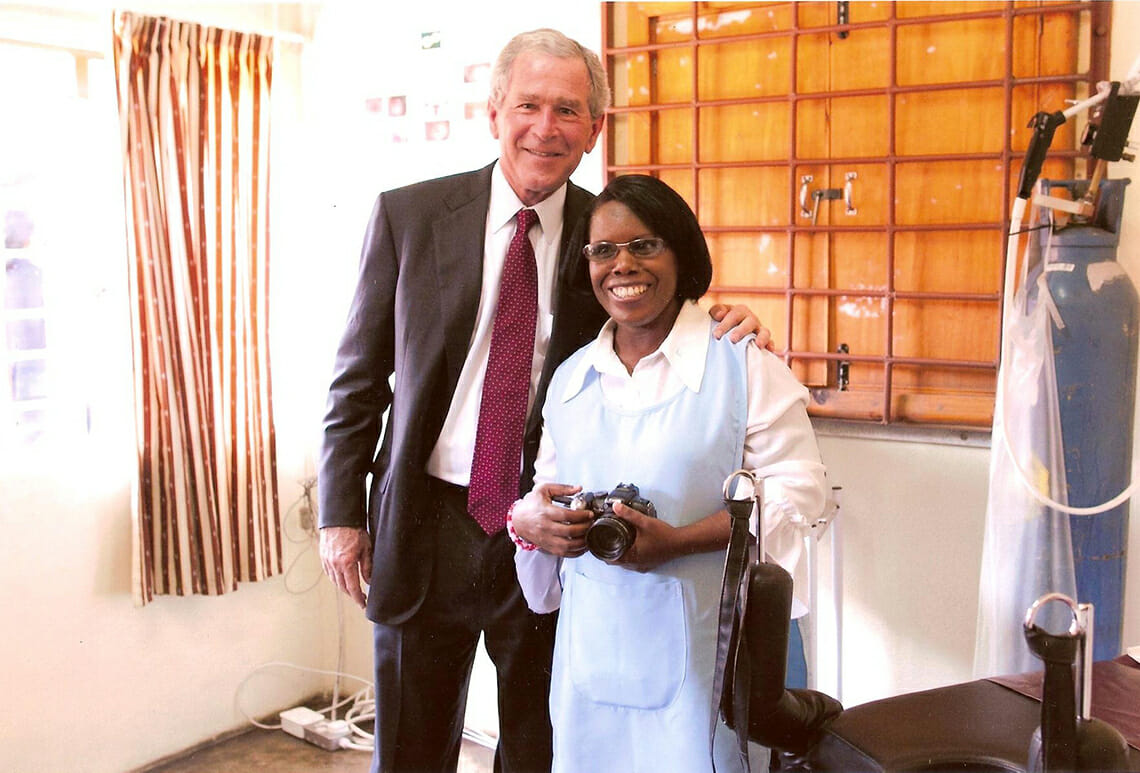
Growing up, Mildred Kalufyanya used to imagine becoming a journalist like her father. An unexpected turn of events changed that plan, but Mildred’s work still centers on making sure vital information reaches a wide audience. In recognition of #WorldCancerDay, meet PCI Zambia’s Cervical Cancer Screening and Treatment Coordinator.
What initially drew you to working in public health?
As a child, I always wanted to take after my father’s profession, journalism. However, this was all to change when he was involved in a near fatal road accident. The experience of seeing other people nurse him back to health had a profound impact on me and helped me change my mind to start thinking about a career in medicine. I felt a very strong calling within myself and could not ignore the urge to help others in the same way people had assisted my father.
What has that calling looked like for you over the years?
As a nurse/midwife and having lived and worked at a health facility in a sugar manufacturing estate with a lot of migrant workers, I saw firsthand the devastating effects of HIV/AIDS on individuals, families and communities. It was then I realized that I needed to undergo further training if I was to make a positive contribution to the community I served and was part of. I acquired additional skills in intensive counseling, community care for HIV/AIDS patients and the management of orphans and vulnerable children. I also studied the design, implementation and management of HIV/AIDS programs.
When did you turn your attention to cervical cancer prevention work?
Up until 2009, my career centered around HIV/AIDS only. But when I saw a job opening for cervical cancer screening and treatment nurses to be placed in public HIV/AIDS treatment clinics, I applied. I had seen how the HIV/AIDS and cervical cancer comorbidity was affecting women, and the most depressing part was that they were presenting late. I got the job and it was through that time as a cervical cancer screening and treatment nurse that I gained technical experience and grew my passion for serving women with cervical cancer and saving them from unnecessary death.
Women living with HIV are at least five times more likely to develop cervical cancer than their HIV-negative peers. They have twice the risk of death from invasive cervical cancer within three years than women who do not have HIV.
How would you describe what you do to those who might not be familiar with your job?
Cervical cancer screening is not routinely provided in our health system, especially in remote and rural areas, so we take the much-needed service to women across Zambia. I work closely with the Ministry of Health to ensure our program is using nationally and globally endorsed training guidelines, equipment and supplies. I also coordinate and lead training programs for health care providers on our team.
Is there a particular moment from your career that stands out, one where you knew your work was making a difference?
In December 2011, I had the rare privilege and honor of hosting a visit from former U.S. President George W. Bush and the First Lady at the public clinic where I worked. After seeing on-the-ground experience of screening and treating cervical cancer in a resource-constrained setting, he launched the Pink Ribbon Red Ribbon (PRRR) Initiative. Through PRRR and PEPFAR, over 100,000 women in Zambia have accessed cervical cancer screening services.
PCI Zambia implements mobile cervical cancer screen-and-treat services across all 10 provinces of Zambia. Since 2011, our program has screened 24,420 women for cervical cancer. Those with precancerous lesions are immediately treated with cryotherapy or thermal coagulation. Women with more advanced cases are referred to diagnostic laboratories and district hospitals for further management. This work is funded by the President’s Emergency Plan for AIDS Relief (PEPFAR) and the Department of Defense HIV/AIDS Prevention Program (DHAPP).
How have you seen communities change in their understanding of cervical cancer and willingness to be screened?
Women have changed from shunning screening services to embracing them. When we were just starting, there were a lot of myths and misconceptions surrounding screening services such as VIA causing infertility in women. At PCI, we have empowered communities with knowledge. Our mobile screening interventions are preceded by participatory community mobilization/sensitization programs. Through this, we have seen a lot of women coming out to seek screening services and we are now overwhelmed with turnouts. The buzz statement in communities now is, “Why suffer from cervical cancer when it can be prevented? The earlier it is detected, the greater the chances of being healed.”
What keeps you motivated?
Because of PCI’s mobile screening program, more and more women are getting timely cervical cancer screening services and living a life free from cervical cancer. That is quite motivating! I would love to reach out to as many women as possible so that no one should suffer from this disease when medical care has advanced so much and is readily available. I would like to see cervical cancer prevention go to a higher level in Zambia, in Africa and beyond.

